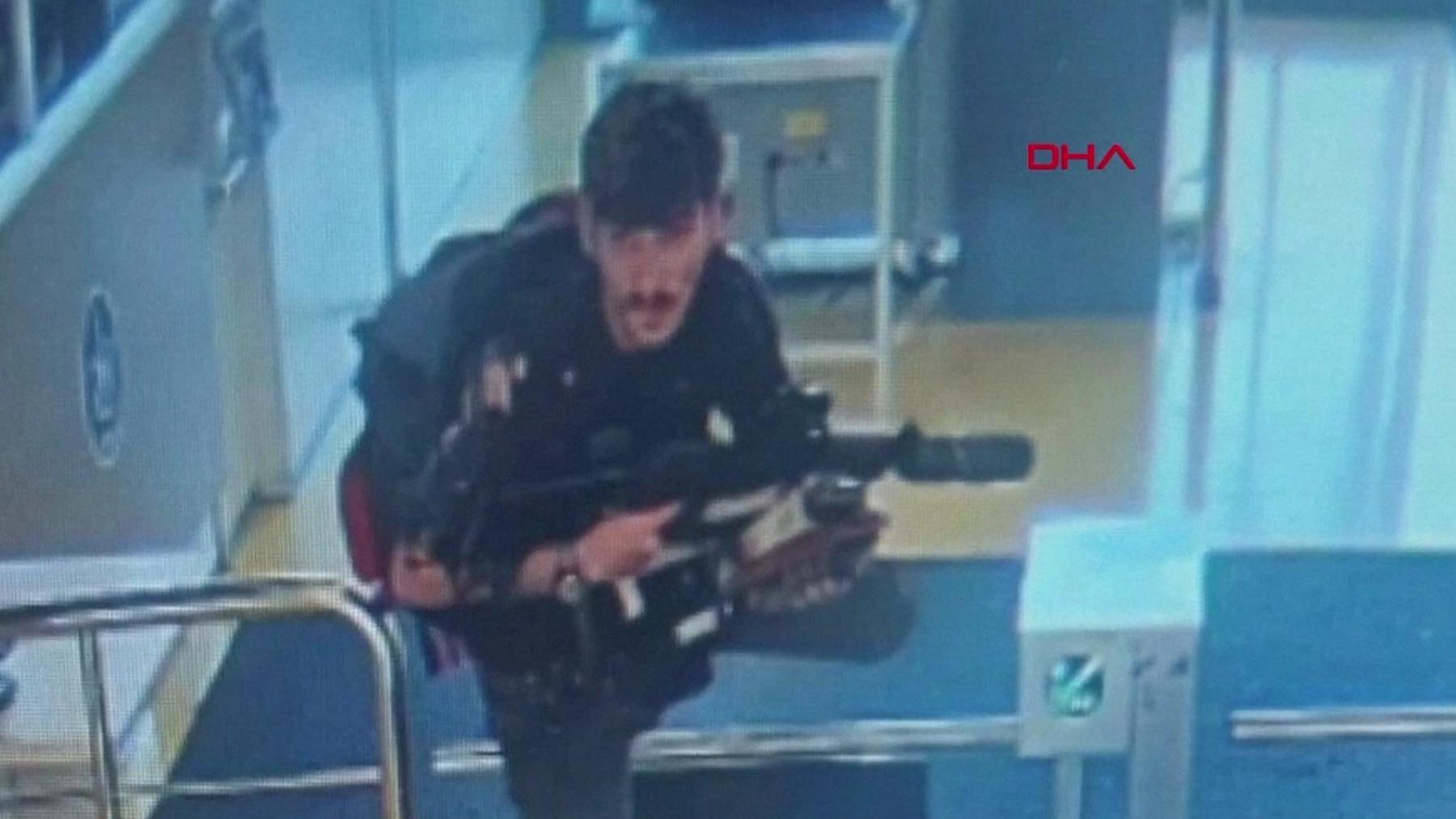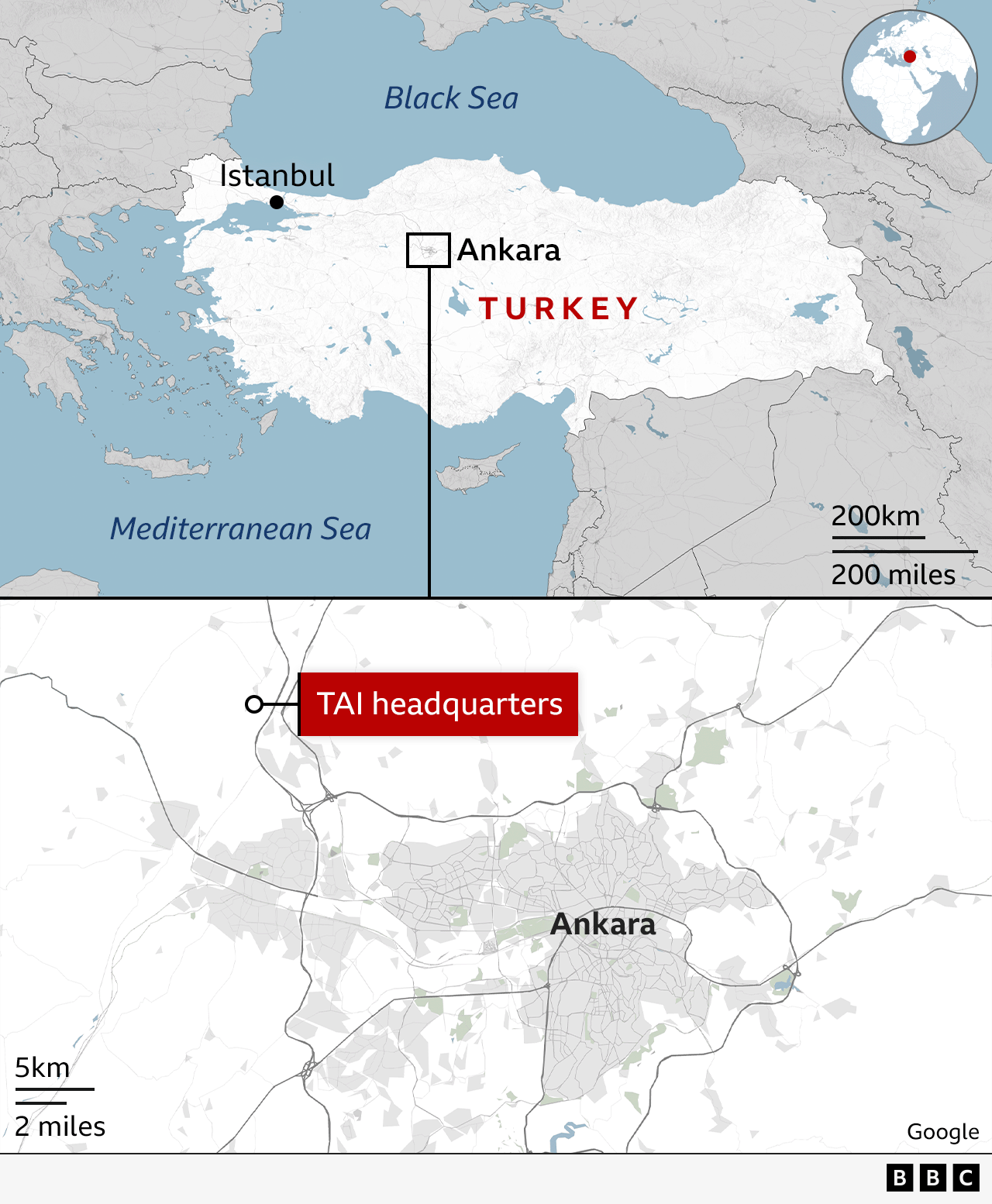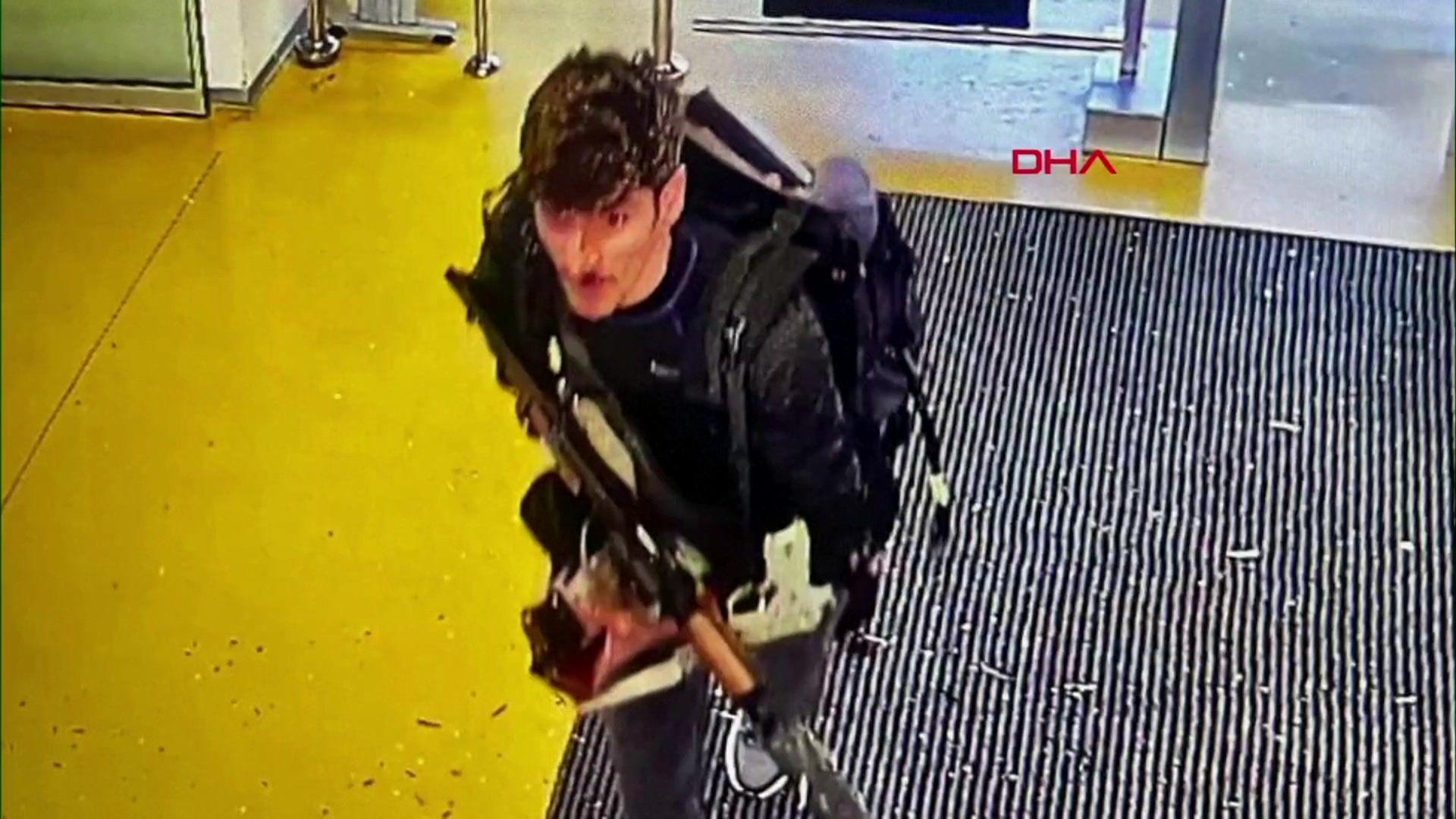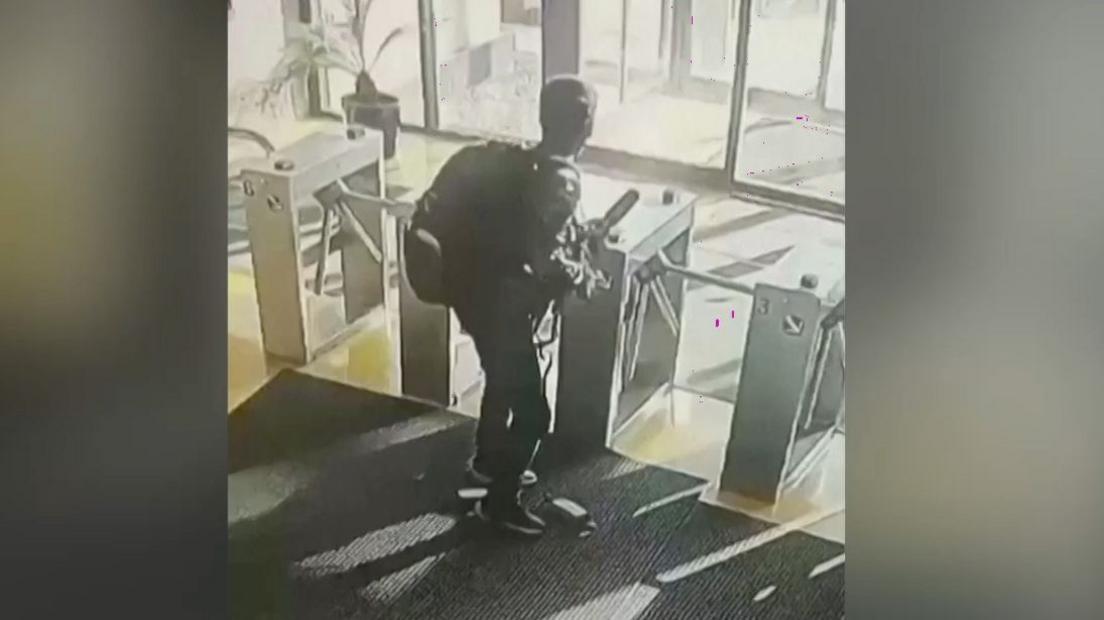Turkey strikes Kurdish sites after attack kills five near Ankara

- Published
Turkey's government says its military has struck sites in Iraq and Syria linked to Kurdish militant group the PKK, after blaming it for an attack near Ankara that killed at least five people.
The Turkish government said that the strikes since Wednesday had killed 59 people it described as "terrorists". A Kurdish-led militia in Syria said 12 civilians died in the north and east of the country.
Various videos from the attack earlier on Wednesday show at least two people firing guns around the entrance of Turkish Aerospace Industries (TAI), which is located some 40km (25 miles) outside the capital.
No group has claimed responsibility for the attack, in which 22 people were injured.
The Turkish defence ministry said that since Wednesday night and Thursday morning, its strikes had “successfully eliminated” 47 targets including caves, shelters, warehouses and other facilities in northern Iraq and Syria.
President Recep Tayyip Erdogan called the attack on TAI "heinous" in a post on X.
Interior Minister Ali Yerlikaya said shortly after the attack that the two perpetrators, a woman and a man, had been "neutralised".
On Thursday, Yerlikaya said the attackers had been identified as PKK members Ali Orek and Mine Sevjin Alcicek.
The Kurdistan Workers' Party (PKK) is banned as a terrorist organisation in Turkey, the US and UK, and has been fighting against the Turkish state since the 1980s for greater rights for the country’s significant Kurdish minority.
The Kurdish-led Syrian Democratic Forces (SDF) said on Thursday morning that Turkey had launched a "new wave" of attacks, including on "civilian gatherings", killing 12 people.
According to the the Syrian Observatory for Human Rights, Turkish warplanes and drones targeted infrastructure in northern and eastern Syria.
It added that the region had seen “intensive raids” in the cities of Hasakah, Raqqa, Kobani, Manbaj and Tal Rifaat.
The watchdog said Turkish forces resumed attacks on Thursday morning, with targets including a checkpoint near a train station, a bakery and power station.
The Turkish defence ministry said earlier that "all kinds of precautions were taken to prevent harm to innocent civilians, friendly elements, historical and cultural assets and the environment".
How did the Turkey attack unfold?
Turkish Vice-President Cevdet Yilmaz said four of the victims of Wednesday's attack near Ankara were TAI employees, while the fifth was a taxi driver.
The victims were named by Turkey's state-run news agency as Cengiz Coskun, a quality control officer, Zahide Guclu, a mechanical engineer, security guard Atakan Sahin Erdogan, another employee called Huseyin Canbaz and Murat Arslan, the taxi driver.
Local media had earlier reported that the attackers killed the cab driver before taking his vehicle to carry out the attack.
The blast took place around the time of a shift change, and staff had to be directed to shelters, they said.
Yerlikaya also confirmed that seven special ops forces members were among the 22 who were injured in the attack.
UK Prime Minister Sir Keir Starmer said he was "appalled" by the attack in Ankara.
In a post on X, he wrote: "We stand shoulder to shoulder with Turkey as a Nato ally and close friend."
President Erdogan - who at the time was in Russia for the Brics summit - condemned what he called a "vile terror attack" during a meeting with Russian President Vladimir Putin, in remarks broadcast live on TV.
He later posted a lengthy statement on X, saying that security forces acted quickly to neutralise the threat, and that "no terrorist organisation, no evil focus targeting our security will be able to achieve their goals".
Turkish authorities have imposed a media blackout on details of the attack, and users in large areas of the country have reported not being able to use social media sites like YouTube, Instagram, Facebook and X.
The president of Turkey’s Radio and TV Supreme Council, Ebubekir Sahin, warned that all images relating to the incident should be removed from social media, and urged users not to share images which “will serve the purpose of terrorism”.

TAI is a key player in Turkey’s aerospace industry, designing, developing and manufacturing various aircraft for commercial and military use.
It is the company designated by the Nato member to be the licensed manufacturer for the US-designed F-16 fighter jets. TAI also plays a role in modernising older aircraft for use by the Turkish military.
The firm's two principal owners are the Turkish Armed Forces and a civilian arm of Turkey's government charged with improving its defence capabilities and managing military procurement.
The blast took place as a major trade fair for defence and aerospace industries was going on in Istanbul this week.
- Published23 October 2024

- Published23 October 2024
